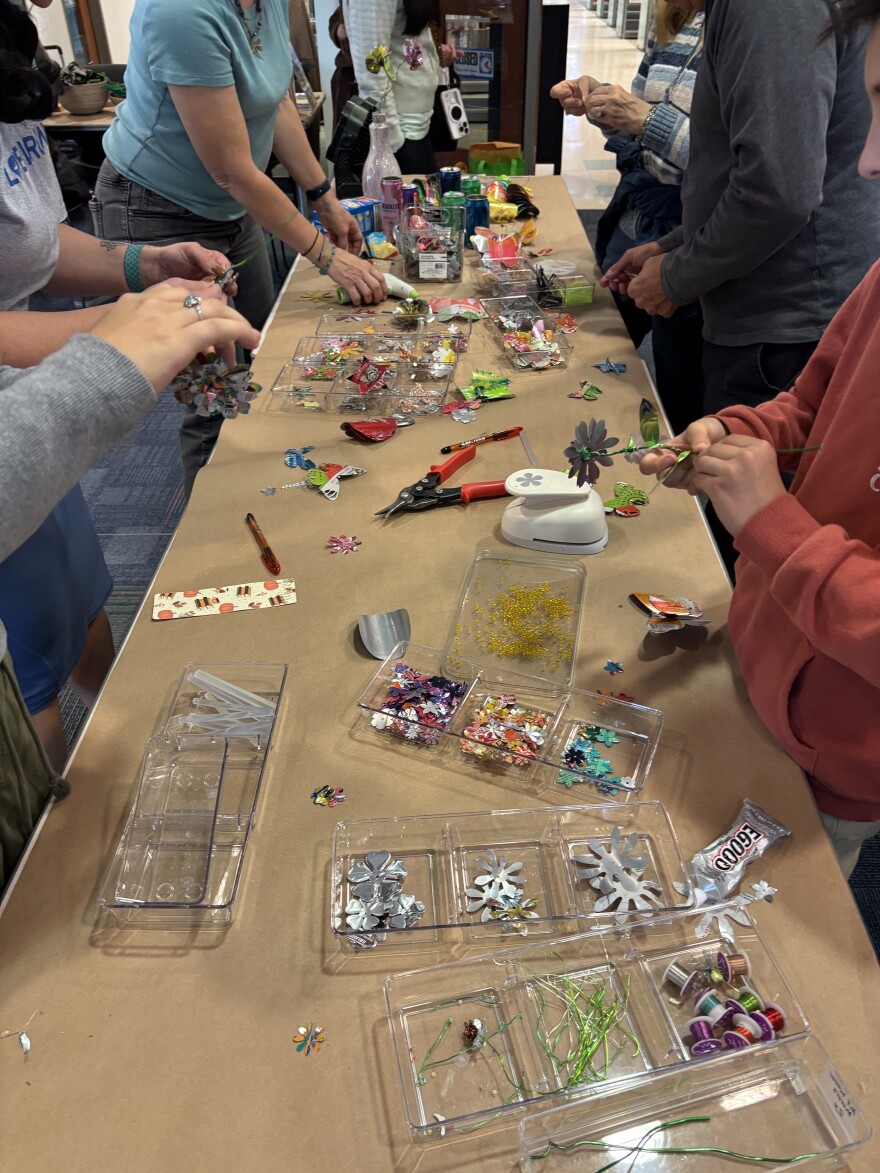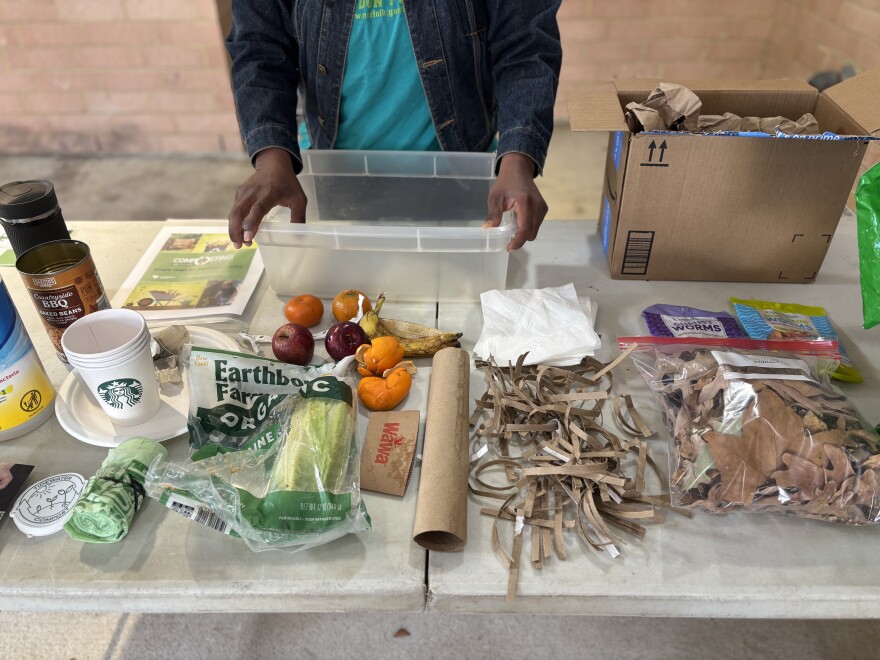The Mary D. Pretlow Library in Ocean View was filled with litter on Saturday, including old magazines, clothing and used coffee cups.
Organizers of the second annual UpCycle Festival were helping people transform all that junk into new items.
“Upcycling is taking something that you already have and finding a new life for that,” said Sarah Sterzing, programs manager for Keep Norfolk Beautiful, which operates under the city’s public works department.
City officials and the citizen-led Norfolk Environmental Commission held the event for America Recycles Day.
Sterzing said the goal is to encourage fewer single-use plastics, which harm the environment, and keep more trash out of landfills. That starts with a shift in mindset.
“We are a little obsessed with our stuff and things,” Sterzing said. “I think a little more time needs to be considered in ways that we can simplify.”
Instead of running to the store for Christmas decorations or clothing, for example, try asking friends and family if they have any they aren’t using, or check out a yard sale, she said. Halloween pumpkins can be used for compost; chipped kitchenware could become a planter.
Keep Norfolk Beautiful and its partners pick up thousands of pounds of plastic litter from parks and beaches each year. But that shouldn’t be the solution, Sterzing said.
“This is a preventable problem. We need people to understand and be educated on the impact that they're having, not just by what they're purchasing and how they're purchasing, but also how they're disposing of their waste.”
At the library Saturday, officials set up hands-on stations highlighting creative methods of upcycling, such as turning T-shirts into tote bags.

Local jewelry artist Rhashida Bess demonstrated how to make bracelets using fabric scraps wrapped around pipe cleaners.
Bess said she tries to work sustainably, using primarily cold-forming metal to cut energy use and sourcing reusable materials, such as brass containers, textiles or laundry detergent bottles.
“I love going to a thrift store and looking for old things to take apart,” she said. “Finding ways to make things have a new life as a form of adornment.”
At another table, her daughter, Alora Bess, worked with attendees to make journals out of recycled magazines and collage paper.
She and her mother own Studio Kuumba at the Selden Market in downtown Norfolk, focused on using arts and crafts as a way to “heal and self-soothe.”

“Merging the two — the crafting and then also just being eco-conscious — it really aligned with what I do,” she said.
Nine-year-old Rowan used parts of aluminum soda cans to create a butterfly and flower.
“I'm learning that you could make a bunch of things out of scraps and trash,” he said.
Outside, Carter McRee, community outreach captain for commercial composter Tidewater Compost, explained why it’s important to keep organic materials out of the landfill.
Heaps of trash turn into what those in the business call “garbage lasagna,” he said, with some layers decomposing and others not.
“I'm sure if you were to dig all the way down to the bottom of Mount Trashmore, you could probably find a hot dog or a Twinkie that has not decomposed at all since I was a kid when they built that thing,” McRee said.
Decomposing food waste, when it is crammed into a landfill, also emits methane, a climate-warming greenhouse gas that is significantly more potent than carbon dioxide.
Composting allows organic material to mix with oxygen, which reduces methane. Plus, nutrient-rich composted material can be used in home gardens as soil.
The event showcased materials that can be composted, from simple food waste to cut up paper coffee cups and cardboard toilet paper rolls.



